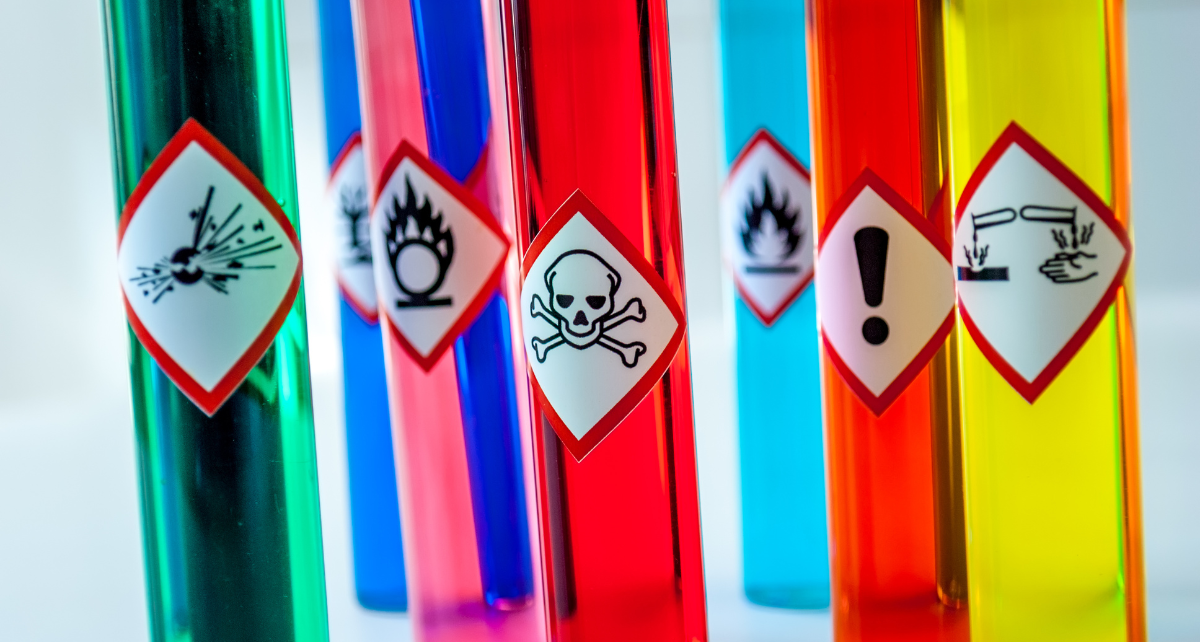PFAS in menstrual products are under fire and for good reason. Standing for per- and polyfluoroalkyl substances, PFAS are known as “forever chemicals.” We may as well add “everywhere chemicals” to their description because, sadly, they are found everywhere, too—from cleaning supplies to makeup to—you guessed it—period pads and tampons.
Ugh, right?
But listen: while it’s important to approach this topic thoughtfully, we must also do so without fear. It all comes down to knowledge, and knowledge is power. So let’s look the facts with transparency so you can make informed choices when you choose your period care.
What Are PFAS in Menstrual Products?
PFAS are synthetic chemicals used to make materials resistant to water, stains, and grease. They’re common in everyday products like:
-
Cleaning supplies
-
Cosmetics
-
Food packaging
They’re aptly called "forever chemicals" because they don’t easily break down in the environment or the human body. Umm, concerning, no? But actually, just because a chemical is present doesn’t automatically mean it’s harmful. It’s often about the dose and duration of exposure—a concept called the "therapeutic window."
PFAS in Menstrual Products: Are They a Cause for Concern?
The study in question found traces of PFAS in nearly half of the menstrual products tested, including some marketed as organic or natural.
Given that these products come into contact with sensitive areas, it’s natural to wonder about potential health risks.
However, no studies have yet confirmed that the levels of PFAS found in menstrual products lead to health issues. What this means is we need more research to better understand any potential risks.
Understanding PFAS Health Risks
According to the U.S. Environmental Protection Agency (EPA), high levels of PFAS exposure have been linked to:
-
Reduced fertility
-
Hormonal disruption
-
Increased cancer risk
While some period care brands love to lean into fear-based marketing tactics to sell their products, we urge you to keep things in perspective. These findings are based on much higher levels of exposure than what would typically happen with menstrual products.
While it’s wise to minimize exposure to harmful chemicals where possible, we shouldn’t panic about the trace amounts detected in these studies. What we need is more data to fill the gaps in our understanding.
Legislation and Industry Progress
Some governments are stepping up. For example, California recently passed legislation to ban intentionally added PFAS in menstrual products by 2027. This is a positive step toward transparency and consumer safety. Measures like this push manufacturers to provide clearer information about what’s in their products and to explore safer alternatives.
What You Can Do
We know it can feel overwhelming to navigate concerns about chemicals in everyday items, especially products as personal as menstrual care.
But you shouldn’t feel bad about the products you’ve used, and you should also feel good about the products you choose moving forward. That’s why we prioritize radical transparency.
What Radical Transparency Means to joni
Radical transparency isn’t just a buzzword—it’s a promise.
It means being open about the materials and processes we use so you can make informed decisions.
It means advocating for continued research and better standards across the industry.
Most importantly, it means aligning our values with your safety, comfort, and peace of mind.
Why joni Products Are Different
At joni, we’re proud to create products that reflect our commitment to your well-being and the planet. Here’s what sets us apart:
-
Organic Materials: Our products are made with quality organic bamboo and cotton materials and are free from added harmful substances.
-
No Added Chemicals: We avoid petroleum-based plastics, fragrances, elemental chlorine, and, of course, PFAS.
-
Ongoing Testing and Certifications: Everything in the world has chemicals, but joni pads and tampon ingredients are tested and certified to ensure there are no harmful levels of toxins, including PFAS. In addition to chemical testing, each batch of pads is tested to ensure microbiological indicators comply with national standards (bacterial testing). Check out our FAQs for more info.
-
Sustainability: Our products are biodegradable, compostable, and designed with the environment in mind.
We believe everyone deserves safe, accessible period care without compromise.
The Bottom Line
The conversation about PFAS in menstrual products is important, but it shouldn’t be driven by fear. Instead, let’s use it as an opportunity to push for more research and greater accountability.
In the meantime, we’re here to offer you organic bamboo and cotton period products you can trust and transparency you can count on. Because you deserve to feel good about the choices you make—for yourself and for the world.
Originally published on December 17, 2024 and updated September 2, 2025.
